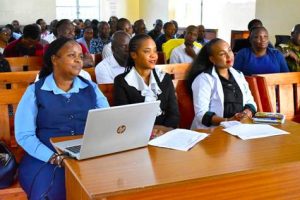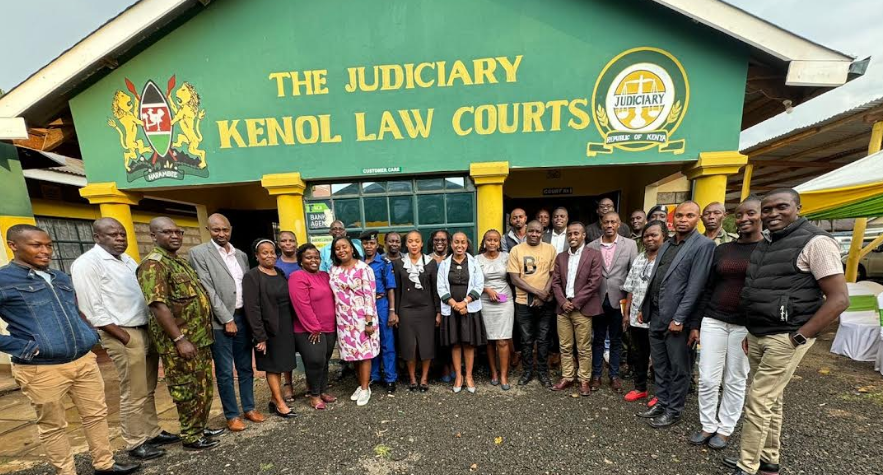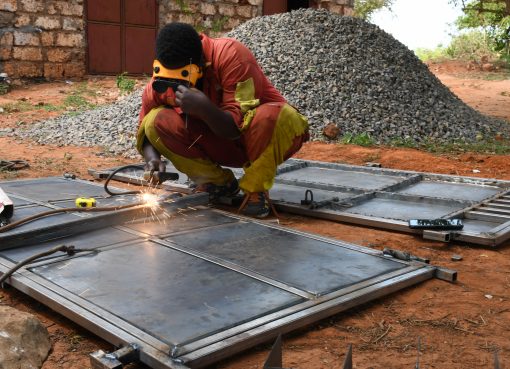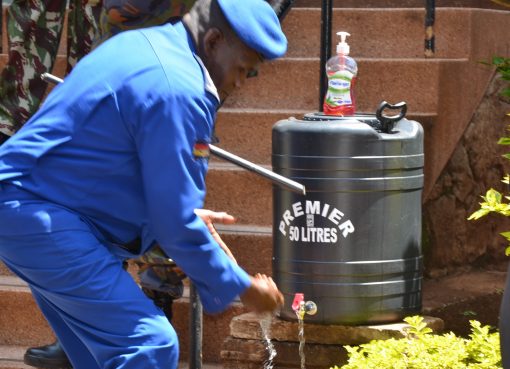Members of the Kenol Law Court user’s committee (CUC) in Murang’a have undergone training on the Alternative Justice System (AJS).
The members, who include the police, probation and the children’s departments, LSK, religious leaders, NGAO, and business community representatives, were urged to be champions of AJS, which was introduced in the country in 2012 through a pilot program in Isiolo County. The programme became fully operational in 2020.

Speaking during the training, Senior Principal Magistrate Joan Irura underscored the importance of integrating traditional dispute resolution mechanisms, as outlined in Article 159(2)(c) of the Constitution of Kenya 2010.
“Justice should not always be confined to the courtrooms but should extend to local communities, respecting their customs and traditions while safeguarding human rights,” she noted, adding, “As CUC members, your role is to promote the AJS forum as the court of first instance on local cases as well as assist AJS in categorising the cases that go before the AJS forum.”
The magistrate observed that AJS bridges the gap between formal justice systems and community-based solutions, ensuring peace, reducing litigation, and promoting cooperative, harmonious relationships as it is a form of restorative justice unlike the adversarial system in the court of law.
“Promote AJS as it ensures social inclusion as it is participatory in nature, is affordable with minimum formalities and technicalities, and above all has proved to be an effective mechanism for the reduction of cases backlog and decongestion of the courts,” she stated.
The Magistrate painted a picture of what normally happens when a dispute arises in the communities through the river of justice, whereby a percentage of the disputes are resolved personally, other disputes go to religious institutions to have their dispute resolved, others take the administration route, while others seek social dialogue and arbitration mechanisms.
“Statistics show that only 21 per cent of disputes are resolved in courts, as now more than ever people are resulting in multi-door alternatives like AJS,” she observed.
According to the Justice Needs and Satisfaction Survey, 79 per cent of all disputes in Kenya are resolved outside courts.
Further, the CUC members were urged to promote AJS as it reflects the realities of Kenyan people and increases access to justice for many in Kenya, as outlined in Article 47 of the Constitution of Kenya.
In attendance were partners like Delmonte Kenya Limited and Kakuzi PLC, who can use restorative justice in the AJS model to address community concerns such as land use or employment disputes as opposed to protracted legal disputes that may strain future relations with the communities.
By Florence Kinyua





